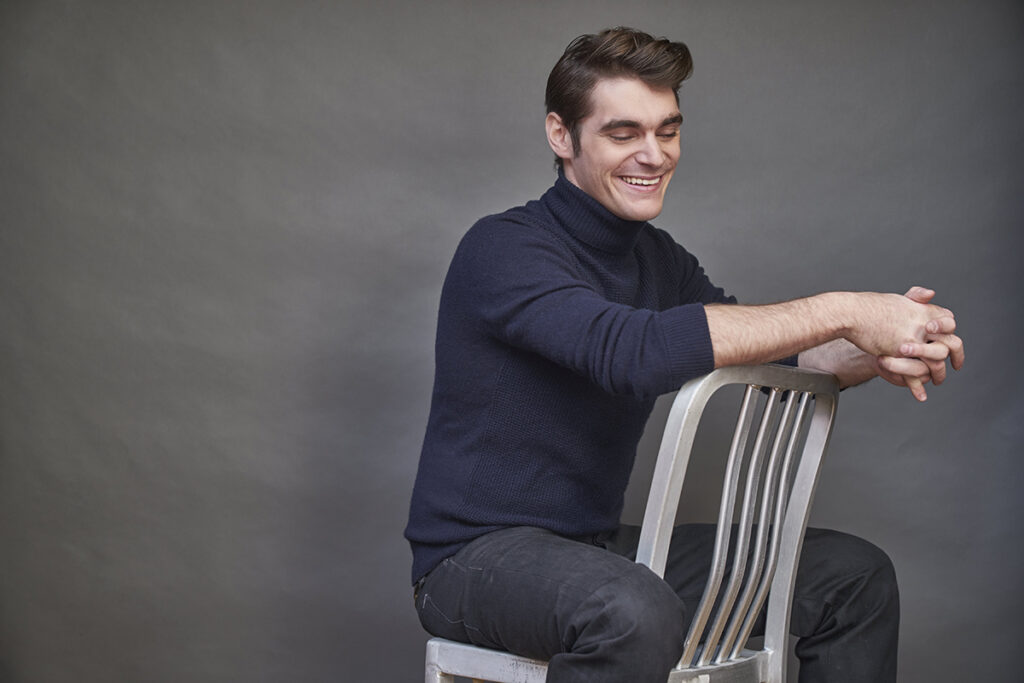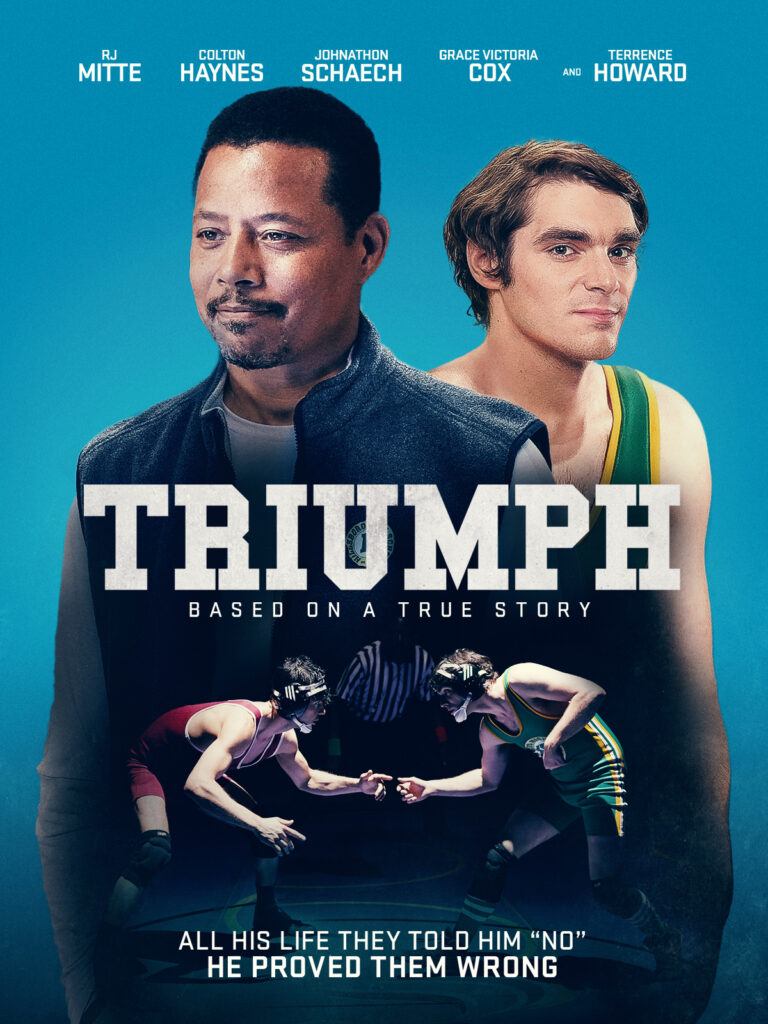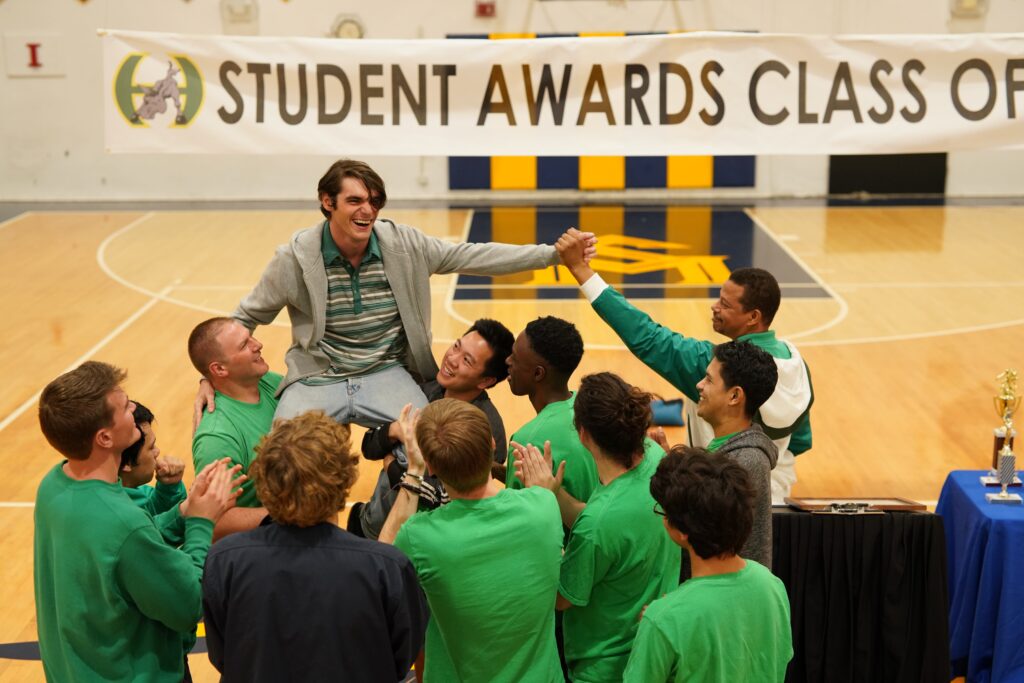Actor, RJ Mitte is known to many of us from his role as Flynn in hit television series, ‘Breaking Bad’. His new film ‘Triumph’ tells the true story of a high school student with cerebral palsy whose ambition is to be on the wrestling team.
Aside from ‘Triumph’ there can’t be many scripts featuring characters with cerebral palsy…
I actually do get a lot of scripts where the main characters are disabled, because of my notoriety through Breaking Bad and my own disability. When it came to this script in particular, what really had me, wasn’t just that the main character had a disability like my own, but really, the journey of this story. Michael Coffey, the writer and creator of this character; it’s him, it’s who he is. We want to see ourselves on TV and in films that represent us accurately while being entertaining.
One of the big, big reasons as to why I supported this film so much is, because we took someone’s dream and brought it to reality; took someone’s life and recreated it in a way where we can immortalise this journey. To me that is the ultimate form of filmmaking.

The film is set in the 1980s and displays the views and attitudes of the time. Has it made you rethink how disability issues have developed since then?
Yeah, you’re talking about a very different time and very different mentalities. The world (actually) treated Michael a little bit harsher back then in reality versus what we show in the story. It’s something that we need to remember, that the evolution of what was, what is and what will be, is growing in positive and negative directions. I’m a firm believer that every action has an equal and opposite reaction. I try to focus on being on the positive side of that reaction.
The film explores whether Michael should be enabled to wrestle or protected from it by not being allowed to participate…
Everyone should have the opportunity to do what they want to do whether or not someone else believes they are capable of it. You don’t know what someone is capable of until they try.
We’ve all been hurt; if you take someone at a young age and say you can’t achieve your goal, you can’t achieve your dream, that is emotionally damaging to that individual. To me, instead (it should be) OK, we’re going to do our best to put you in a situation where you might get hurt, but we’re not going to let you ‘die’.
People view disability as a weakness, as an illness and as something that makes you fragile or something that we have to overcome and cure, but to me it’s kind of the opposite. I believe that disability is a strength, that disability is knowledge and power and understanding. It’s not just understanding of others but understanding yourself and the capacity for growth within yourself.

Are you annoyed that you get lots of scripts telling disability themed tales? Or do you regard it as a responsibility to look at those scripts and be the disabled ‘poster boy’?
I’m in the middle…
Yeah, I look at it and go, ‘man, do I always wanted to be represented as a disabled character?’ No, nobody does, but do I have, more or less, an obligation to my community to portray characters
that you probably wouldn’t see unless I did them? I try to find that common ground of where I’m not just this one character but I also do have an obligation. We don’t see these types of people in the media. I mean, I see individuals with disabilities everywhere but I think people don’t realise how common it is to have a disability. Is it the character I always want to play? No, but is it the character that needs to be portrayed to bring awareness? Yes.
Returning to the film, the wrestling scenes looked very authentic…
I never did Greco-Roman style wrestling before Triumph. I had two amazing coaches who taught me the fundamentals and I really worked hard to make it look as real and as hardcore as possible.
The physicality of the wrestling was meant to be pivotal in the movie, when it came to what this character was like. This character wanted to do this and he’s working out and he’s training and he’s doing all these things and he’s really come in there and pinned him, but nobody wanted it to be where it is, like, this dude’s really getting wrecked!

Did you get hurt at all?
I did not get hurt but I cannot say that I came out unscathed.
I know you’re a Paralympics fan…
Yeah, very much so. I worked with Channel 4 out of the UK for the Rio Paralympics. Everything you’re seeing is so pivotal to our society, showing what we can do. When you are at the Paralympics you’re seeing amputees, wheelchair users, disabilities of every variety, breaking world records… I don’t think we give Paralympians as much credit as they deserve.
You have people with blades and they’re stoking it! To me, the Olympics show where our pinnacle of human evolution has got to, but that next step is the Paralympics. When we look at the Paralympics, they have less funding, it’s all commitment and heart. These guys are the future to me. We should stop looking at individuals with disabilities, as sick or disabled, or a liability or whatever that stigma is, and look at it as human evolution in front of us and this adaptability to our environment in any capacity, as a very special thing.
Do you see parallels between the Paralympics and other more everyday challenges?
You just keep going and focus on what you’re trying to achieve and what you’re wanting to do – and love what you do. I’m very lucky that I didn’t look for this business, this business kind of found me and it turned into a career for me. It’s one of those things where you just have to keep your head down, keep pushing forward and let the bullets fly past you. And that’s all I do every day. I’m just trying to work, stay busy, keep my lights on and my insurance paid and call it a good day.



